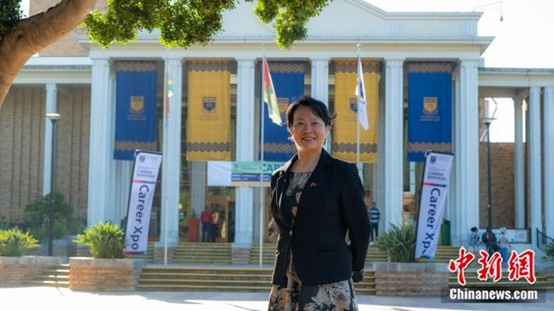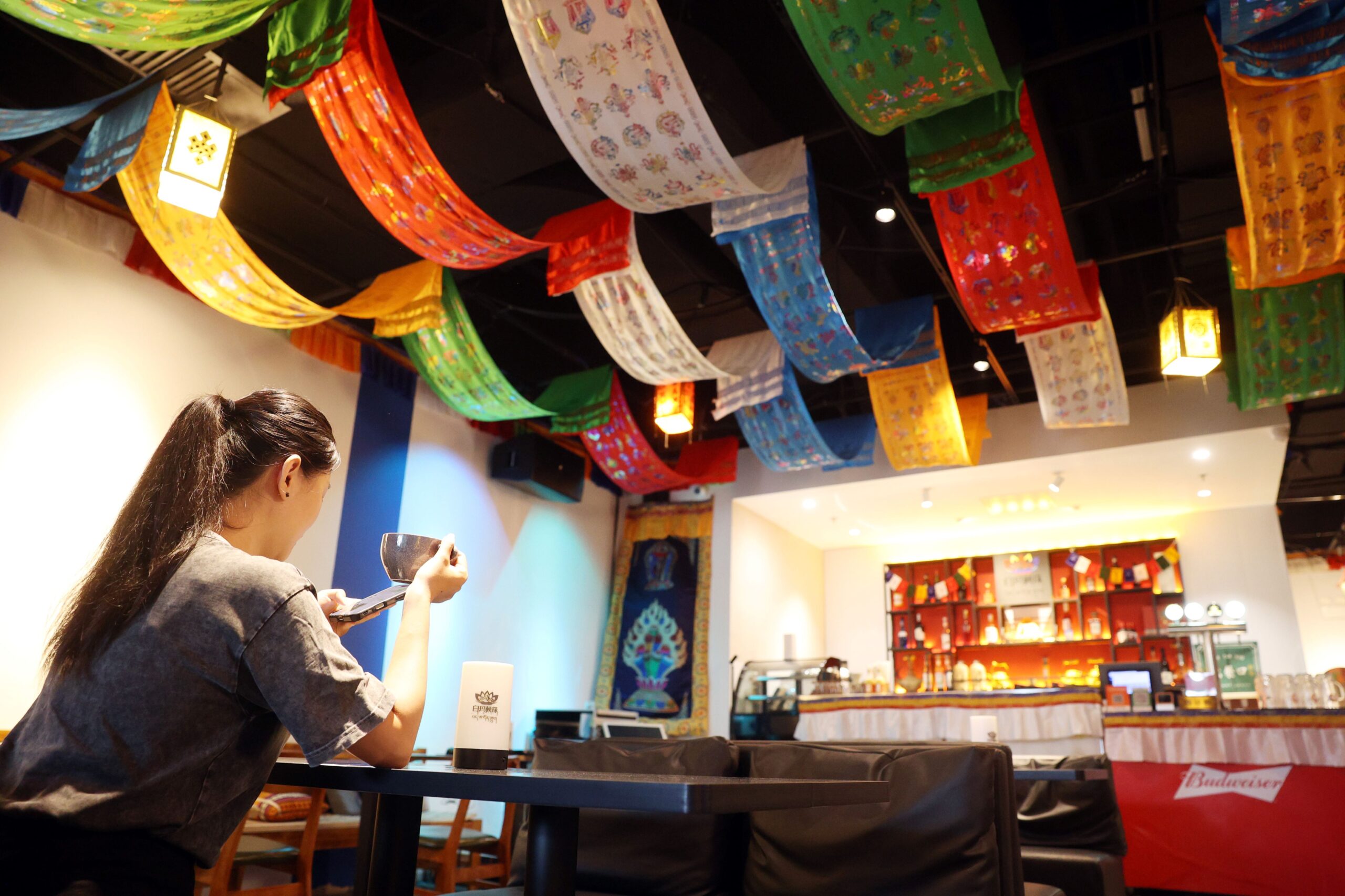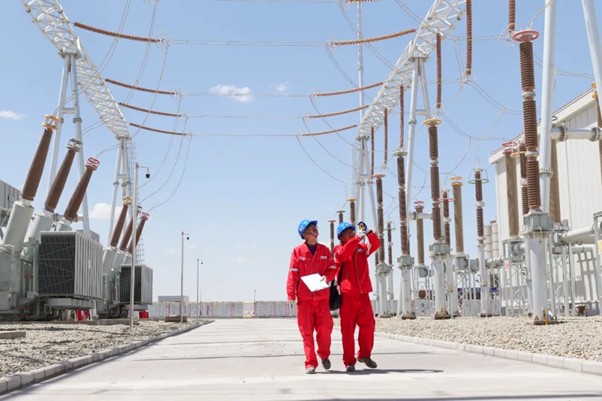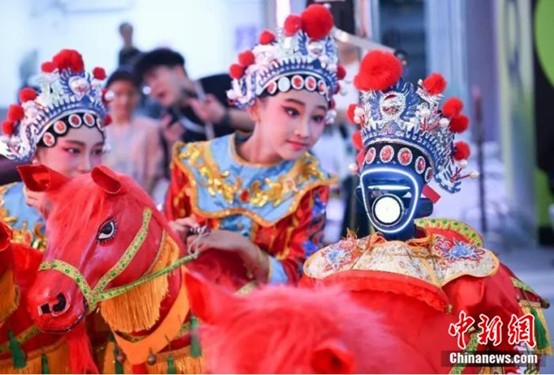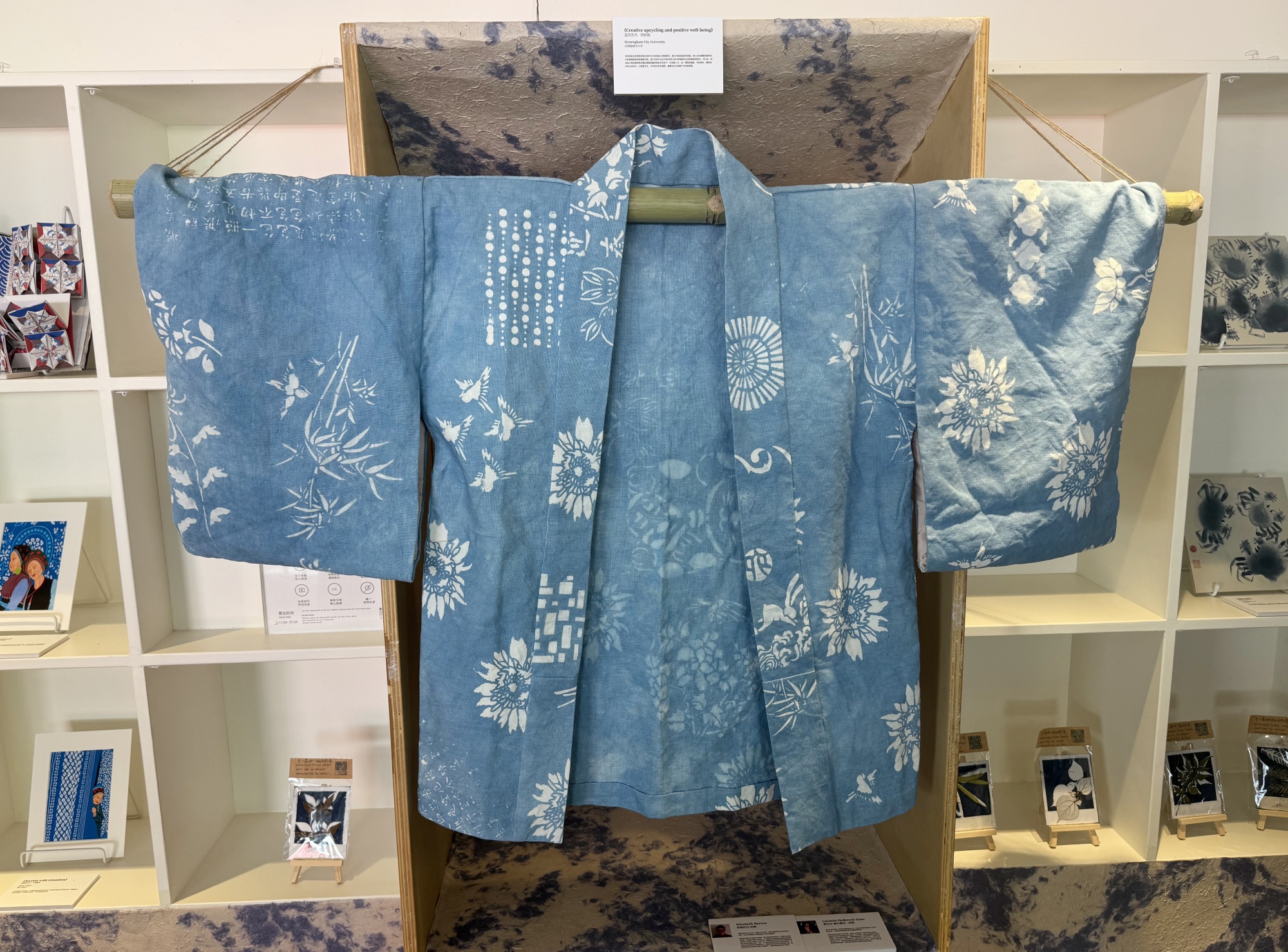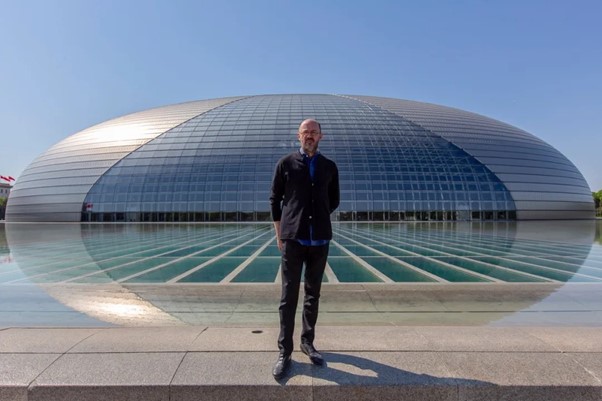Chinese language education in South Africa works as an excellent method of building people-to-people exchanges.
“Language is a tool for human communication, a carrier of civilization, and a bridge to enhance understanding.” In recent years, overseas Chinese language education rapidly developed in South Africa. In 2025, which is the tenth anniversary of Chinese language being officially incorporated into the South African national education system, Chinese has become a vital link in cultural exchange between China and South Africa. During the International Day for Dialogue among Civilizations on June 10, Wu Changhong, the local director of the Confucius Institute at the University of the Western Cape in South Africa, granted an exclusive interview to China News Service’s “the East Meets West,” sharing her experiences and insights from over twenty years of Chinese teaching.
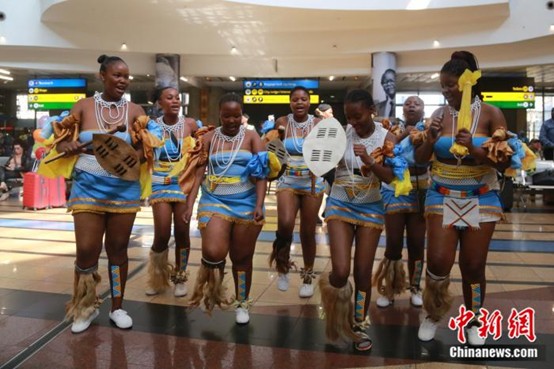
Reporter: What is the current status of international Chinese language education development in South Africa?
Wu Changhong: Continuous deepening of China-South Africa cooperation leads to the rapid development of international Chinese language education in South Africa, encompassing primary education, higher education, and vocational training. Since 2019, China and South Africa designated September 17 each year as ‘South Africa Chinese Language Day,’ with Chinese increasingly serving as an important bridge connecting the cultures and peoples of both countries.
In primary education, Chinese language education was officially incorporated into the South African national education system in 2015. In 2016, the curriculum framework was introduced, offering optional Chinese course from Grade 4 in primary school through Grade 12 (final year of high school); Since 2018, Chinese language has been officially incorporated into the National Senior Certificate examination system as a Second Additional Language subject. Chinese language schools have been established in major South African cities, providing Chinese language education to the Chinese diaspora and their children.
There are as many as 14 Second Additional Language subjects within South Africa’s basic education curriculum. Due to constraints in time and educational resources, the number of primary and secondary schools offering Chinese language courses remains limited. At the primary school level, Chinese is mostly offered as an extracurricular class, while fewer than five high schools have made Chinese a compulsory subject. Currently, teaching resources primarily depend on dispatches from the Center for Language Education and Cooperation under the Chinese Ministry of Education, and most textbooks are published by Chinese publishers; these materials still require further adaptation to adapt to the linguistic environment and learning habits of South African students.
In the field of higher education, among South Africa’s 26 universities, 9 have already introduced Chinese language courses, including the establishment of Chinese language program, Chinese language electives, and Chinese language teaching centers. Notably, the University of Cape Town, Stellenbosch University, and Rhodes University offer Chinese language studies at the undergraduate, honors degrees, and master’s levels.
In the vocational education field, continuous growth of Chinese enterprises in South Africa gives rise to the exploration of the ‘Chinese language + professional skills’ model among some vocational colleges and the corporate training institutions, thereby opening new pathways for employment-oriented talent development. Although it is still in its early stages, lacking a unified professional Chinese language certification system and examination standards, it demonstrates a promising trend. Going forward, it urgently requires increased industry participation and policy support to promote the deep integration of Chinese language in practical training.
South Africa currently hosts seven Confucius Institutes, two independent Confucius Classrooms, and multiple affiliated Confucius Classrooms and teaching sites. Among them, one institute specializes in traditional Chinese medicine, and another focuses on green technology. South Africa has the highest number of Confucius Institutes in Africa. Beyond language instruction, Confucius Institutes promote the integration of Chinese language education with the local education system, organize Chinese proficiency tests, conduct teacher training, and support student exchanges and academic cooperation between South Africa-China universities, thereby expanding both the depth and breadth of Chinese language learning.
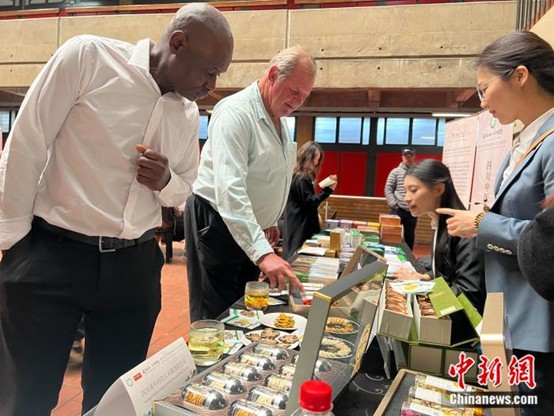
Compared with other regions, what are the distinctive features of international Chinese language education in South Africa?
Chinese language education in South Africa is characterized by multilingual integration, economic impetus, policy support, and cultural exchange, reflecting a development path distinct from that of Europe and America, Southeast Asia, or other African countries. At the same time, the popularization of Chinese language education has not only enhanced the South African people’s understanding of China but also enriched the ‘Rainbow Nation’ by making its culture more diverse and inclusive.
Firstly, Chinese language teaching is based on multilingual environment. South Africa has 12 official languages and over ten foreign languages. Chinese, as one of the foreign language subjects, together with other languages, forms a distinctive multilingual education system. In this context, Chinese language education is not merely foreign language instruction but is deeply integrated within a multilingual and multicultural environment. For example, some Chinese teachers in South Africa conduct research comparing the pronunciation of Chinese and the indigenous South African language Xhosa, which significantly supports their Chinese teaching and helps both students and teachers better understand language structures.
The Chinese language education system is supported by government policy. In recent years, the South African government has adopted an open approach to multilingual education, supporting the integration of international languages, including Chinese, into the curriculum. Both the South African government and academic institutions encourage the development of multilingual competencies. Chinese, as an emerging foreign language, alongside English and African languages, constitutes a vital part of South Africa’s multilingual education system, reflecting its diverse and inclusive nature.
Thirdly, The practical demand of Chinese education is driven by economic development. Unlike in Europe and the United States, where Chinese language education is primarily of the academic purpose, Chinese education in South Africa it is largely propelled by Sino-South African economic and trade cooperation. China is South Africa’s largest trading partner, with numerous Chinese enterprises investing in the country. Chinese language proficiency is increasingly recognized as an asset in employment, particularly in sectors such as commerce, tourism, and engineering.
Fourthly, Chinese education faciliates cultural exchange. Chinese language education not only involves language acquisition but also fosters cultural exchange between South Africa and China. Through initiatives such as the ‘Chinese Bridge’ language competition, International Chinese Language Day, South African Chinese Language Day, and celebrations of traditional Chinese festivals, Chinese language education becomes a vital platform for cultural exchange, allowing the South African public to gain a more direct understanding of Chinese culture. Meanwhile, the local Chinese community actively engages in promoting Chinese language education, collaborating with South African society to jointly advance the dissemination and integration of Chinese culture at the local level.
Lastly, it enhances the cultural diversity of the ‘Rainbow Nation.’ South Africa is known as the ‘Rainbow Nation,’ with a culture that integrates elements from Africa, Europe, Asia, and beyond. The rise of Chinese language education brings ‘Chinese element’ to South Africa, enriching its cultural landscape. Chinese adds a vibrant element to South Africa’s linguistic environment. Many South African students, while studying Chinese, also cultivate an interest in traditional Chinese culture, including calligraphy, painting, martial arts, and traditional Chinese medicine. South Africa’s art, music, and culinary sectors are increasingly showcasing the distinctive characteristics of Sino-Western cultural fusion.
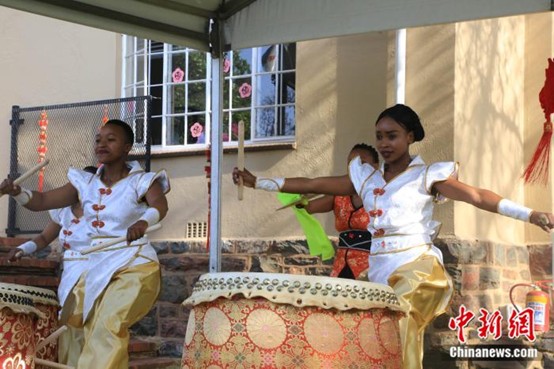
What role does Chinese language education play in the cultural exchanges between China and South Africa?
Chinese language education plays multiple roles in the cultural exchanges between China and South Africa, serving as a cultural bridge, an educational link, an economic catalyst, and an advocate for people-to-people diplomacy. With the deepening development of Chinese language education, it has not only enhanced South African citizens’ understanding of China but also laid a cultural foundation for future cooperation between the two countries.
Firstly, Chinese education program enhances mutual understanding and recognition. Language teaching promotes the bilateral integration of South African and Chinese cultures. As a vital medium of intercultural communication, Chinese language education enables South African students to gain a profound understanding of China’s history, philosophy, and social realities, breaking stereotypes and fostering cultural identification. Within South Africa’s multilingual environment, some schools explore comparative learning between indigenous languages and Chinese, compiling dictionaries for both; these approaches enhance students’ comprehension of Chinese and promote the integration of language and culture.
Secondly, it deepens educational cooperation. South African and Chinese universities exchange resources and jointly cultivate talent. Several universities in South Africa establish Chinese language majors or courses and engage in academic exchanges, student exchange programs, and joint research with Chinese universities, cultivating interdisciplinary international talents for both countries. Chinese governmental scholarships and overseas study programs have attracted an increasing number of South African students to pursue studies in engineering, medicine, trade, and other fields in China. Meanwhile, grassroots platforms such as the South African Chinese Language Teachers Association in South Africa and the Chinese Bridge Club continuously promote the localization of the teaching system, establishing a comprehensive mechanism encompassing teacher training, curriculum development, and examination assessment.
Thirdly, it promotes the collaborations on service economy. Language skills facilitate economy and people-to-people diplomacy from both sides. Chinese skills are essential part of the career competencies among young South Africans since China is the largest trading partner in this country, especially a growing demand for Chinese enterprise, business & trade between China and South Africa, tourism and infrastructure. Mastering Chinese both benefits the employment and South African companies to better connect to the Chinese markets. In addition, Chinese education also develops qualify young communicators who know China. They share their personal experience in China via social media, alumni network and community exchanges, becoming a cultural ambassador for friendly relationship between China and South Africa.
Wu Changhong is the local director of the Confucius Institute at the University of the Western Cape in South Africa. She has been working in International Chinese language education and promoting Chinese language education and culture. She hopes to enhance the mutual understanding and friendship between the people of two countries via education.
If you liked this article why not read: East Meets West | Giuseppe Tornadore: 130 Years of “Harmony and Symbiosis”, How Can World Cinema Move Forward?

